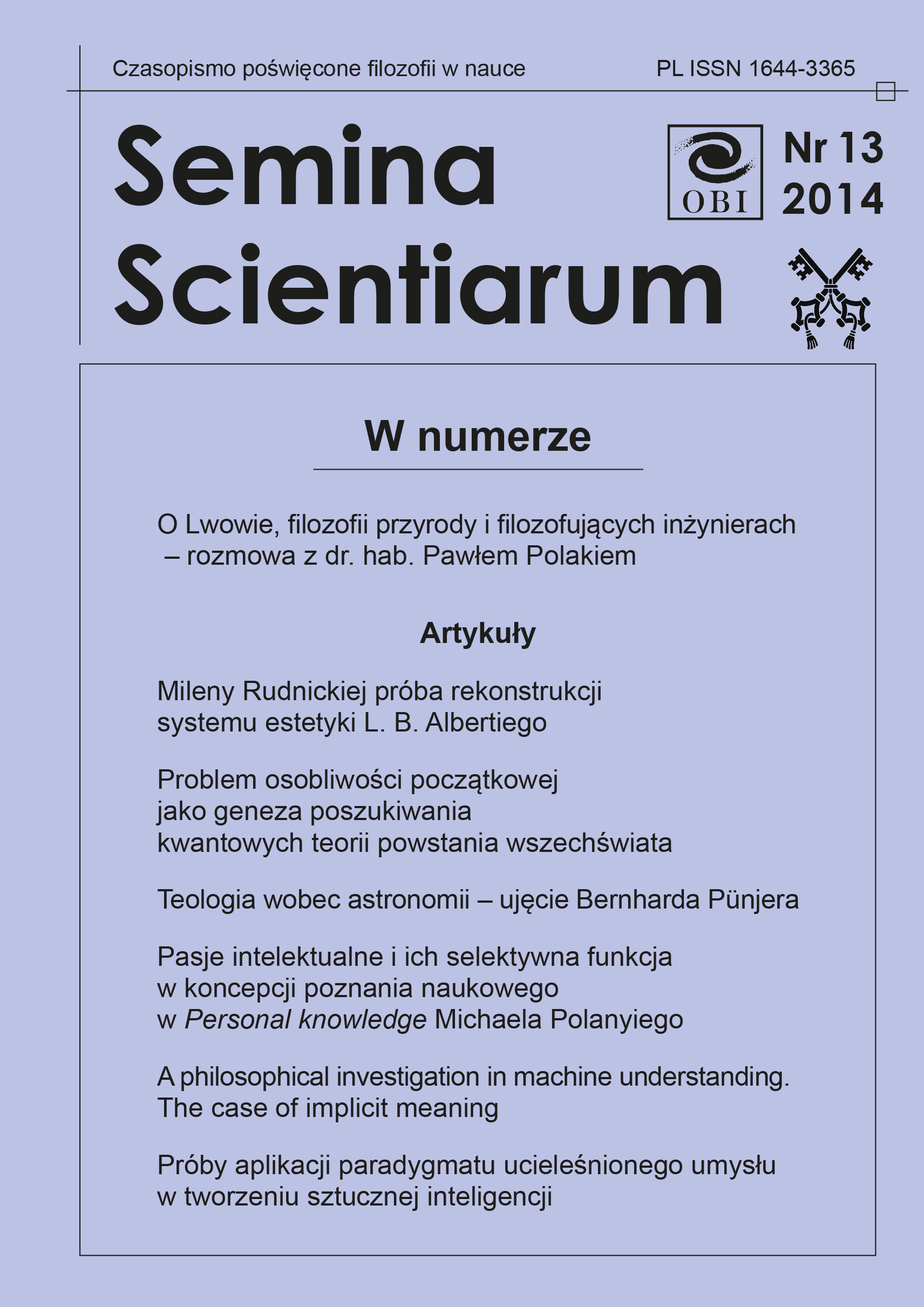Extrapolative Inference and Analogical Reasoning in the Empirical Sciences
DOI:
https://doi.org/10.15633/ss.703Słowa kluczowe:
scientific method, extrapolation, per analogiam reasoning, philosophy of science, generalizationAbstrakt
The primary purpose of this paper is to present the issue of extrapolation, which is interesting from the perspective of contemporary philosophy of science. For its proper explanation, it is crucial to distinguish it from terms of similar meaning, such as analogy, induction or statistical inference. The second goal is to indicate key differences that exist between extrapolative inference and analogical reasoning. Because of this the ascertaining of the identification of these concepts would be a mistake though, of course, there is no way not to notice certain similarities.
Bibliografia
Biela A., Analogy in Science. From a psychological perspective, Frankfurt–New York 1991.
Carnap R., Testability and Meaning, [in:] Readings in the Philosophy of Science, ed. H. Fleigl, M. Brodbeck, New York 1999, p. 47–92.
Extrapolate, www.oxforddictionaries.com/definition/english/extrapolate (20.08.2014).
Guala F., Extrapolation, Analogy and Comparative Process Tracing, “Philosophy of Science” 2010, Vol. 77, pp. 1070–1082.
Hesse M., Models and Analogies in Science, Notre Dame 1966.
Hesse M., The Structure of Scientific Inference, Berkeley 1974.
Popper K., Logic of Scientific Discovery, London–New York 2005.
Sady W., Falsyfikacjonizm Karla Poppera, [in:] W. Sady, Spór o racjonalność naukową. Od Poincarego do Laudana, Wrocław, 2000.
Steel D., Across the Boundaries. Extrapolation in Biology and Social Science, Oxford 2008.
Pobrania
Opublikowane
Numer
Dział
Licencja
Twórca oświadcza, że przysługują mu prawa autorskie do utworu i że nie są ograniczone w zakresie objętym niniejszym oświadczeniem oraz że utwór jest dziełem oryginalnym i nie narusza praw autorskich innych osób.
Twórca zezwala Uniwersytetowi Papieskiemu Jana Pawła II w Krakowie na nieodpłatne, niewyłączne i nieograniczone w czasie korzystanie z utworu, to jest:
- utrwalanie i zwielokrotnianie: wytwarzanie egzemplarzy utworu techniką drukarską, reprograficzną, zapisu magnetycznego oraz techniką cyfrową;
- obrotu oryginałem albo egzemplarzami, na których utwór utrwalono (wprowadzanie do obrotu, użyczenie lub najem oryginału albo egzemplarzy, publiczne wystawienie, wyświetlenie, a także publiczne udostępnianie utworu w taki sposób, aby każdy mógł mieć do niego dostęp w miejscu i w czasie przez siebie wybranym);
- włączenie utworu w skład utworu zbiorowego;
- udzielanie przez Uniwersytet Papieski Jana Pawła II w Krakowie sublicencji Creative Commons Uznanie autorstwa-Użycie niekomercyjne-Bez utworów zależnych 3.0 Polska
Uniwersytet Papieski Jana Pawła II w Krakowie udostępnia utwór na Platformie Czasopism należącej do uczelni, na licencji Creative Commons Uznanie autorstwa-Użycie niekomercyjne-Bez utworów zależnych 3.0 Polska. Tym samym uprawnia wszystkich zainteresowanych do korzystania z utworu pod następującymi warunkami:
- zostanie podany autor i tytuł utworu,
- zostanie podane miejsce publikacji (tytuł czasopisma i adres internetowy do oryginalnie opublikowanego utworu),
- utwór będzie dystrybuowany w sposób niekomercyjny,
- nie będą tworzone utwory zależne.

